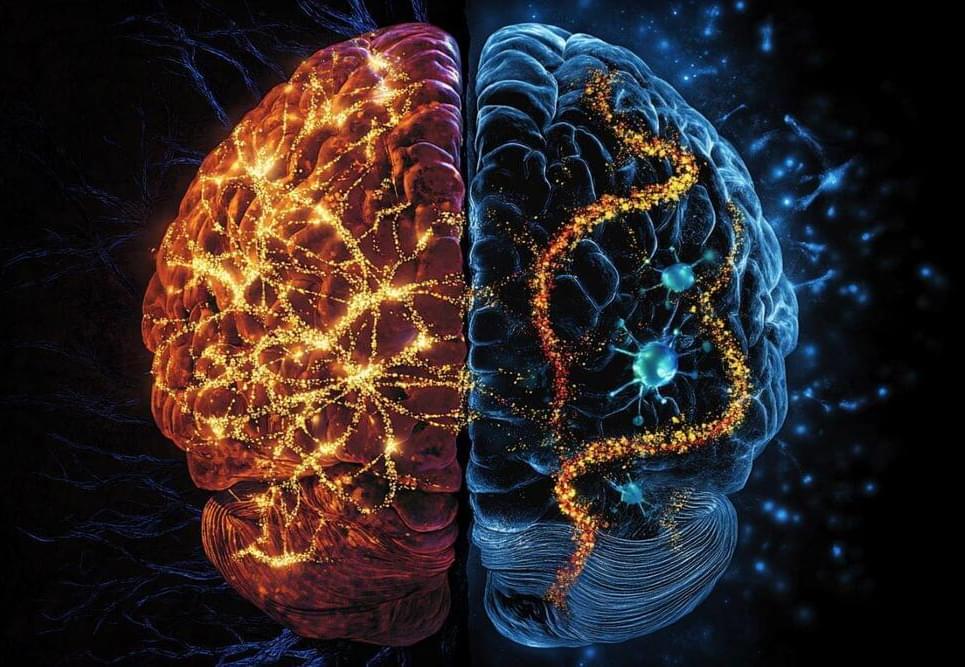Summary: While humans share over 95% of their genome with chimpanzees, our brains are far more complex due to differences in gene expression. Research shows that human brain cells, particularly glial cells, exhibit higher levels of upregulated genes, enhancing neural plasticity and development.
Oligodendrocytes, a glial cell type, play a key role by insulating neurons for faster and more efficient signaling. This study underscores that the evolution of human intelligence likely involved coordinated changes across all brain cell types, not just neurons.

Turns out that these five percent of genes might be responsible for things like spoken language that seem exclusive to humans.